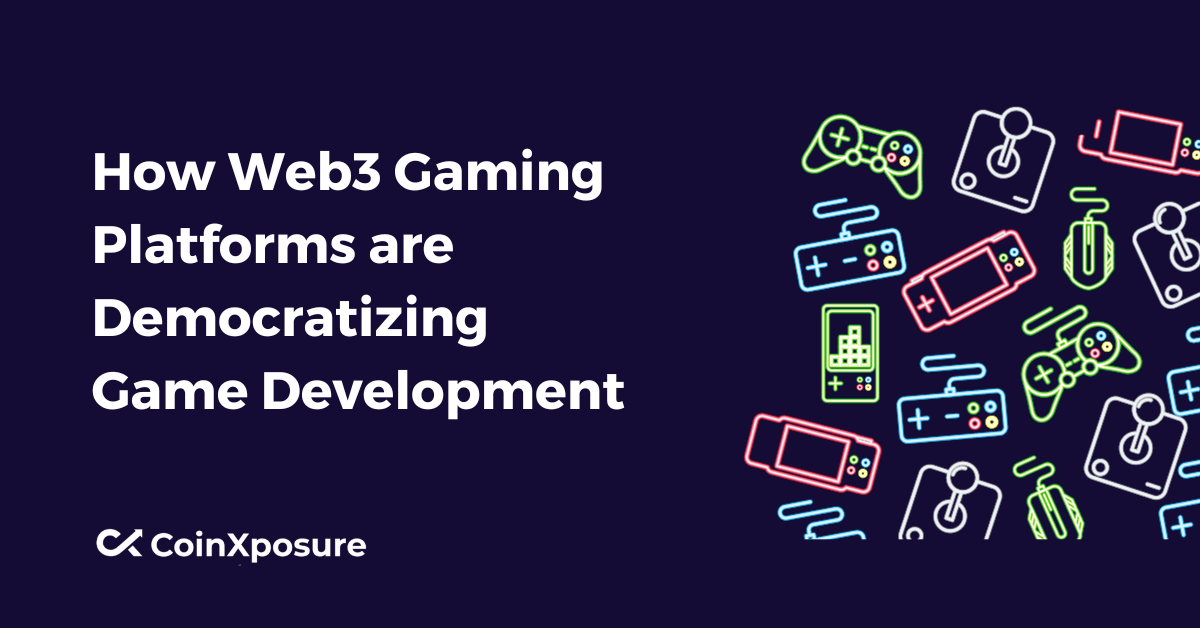
How Web3 Gaming Platforms are Democratizing Game Development
Web3 gaming platforms are ushering in a new era of democratization in game development, reshaping the industry landscape.
Through innovative technologies like blockchain, these platforms are breaking down traditional barriers, providing accessibility to a wider pool of developers, and fostering a collaborative ecosystem.
This shift empowers both creators and players as decentralized structures, tokenization, and open-source principles redefine the way games are conceived, developed, and experienced.
In this transformative landscape, Web3 gaming platforms are not just games; they are catalysts for inclusivity, transparency, and community-driven innovation.
Definition of Web3 Gaming Platforms
Web3 gaming platforms refer to decentralized gaming ecosystems built on blockchain technology, disrupting traditional gaming structures.
These platforms leverage decentralized protocols, smart contracts, and tokenization to empower developers and players.
By eliminating central authorities, Web3 gaming platforms aim to democratize game development, encourage community participation, and redefine economic models within gaming ecosystems.
The blockchain integration ensures transparency, security, and unique possibilities such as asset ownership, fostering a new era where games become collaborative, transparent, and economically inclusive.
How Web3 Gaming Platforms are Democratizing Game Development
Web3 gaming platforms are democratizing game development through several key mechanisms:
- Accessibility
- Decentralization
- Tokenization
- Community Engagement
- Open Source Development
- Smart Contracts
- Interoperability
Accessibility
Lowering entry barriers by providing open access to development tools, allowing a more diverse range of developers to contribute without the need for traditional gatekeepers.
Decentralization
Removing central authorities in the game development process. Blockchain technology enables decentralized decision-making, reducing the influence of a single entity and distributing power among the community.
Tokenization
Introducing tokens as incentives for developers and contributors. This not only provides a tangible reward for their efforts but also establishes new economic models within gaming ecosystems.
Community Engagement
Fostering collaboration between developers and players. Web3 platforms often include mechanisms for decentralized governance, allowing the community to have a say in the direction of the game’s development.
Open Source Development
Encouraging transparent and collaborative coding practices. Web3 gaming platforms often embrace open-source principles, allowing for community-driven improvements, innovation, and increased trust.
Smart Contracts
Automating various aspects of game development and transactions. This ensures fairness and transparency in reward distribution, making the gaming experience more trustworthy for developers and players.
Interoperability
Facilitating cross-platform compatibility and interactions. Web3 gaming platforms aim to break down silos, allowing for seamless experiences and collaboration across different games and platforms.
In summary, Web3 gaming platforms leverage decentralized technologies to shift the power dynamics in the gaming industry, enabling a more inclusive, transparent, and collaborative approach to game development.
Challenges and Considerations of Web3 Gaming Platforms
While Web3 gaming platforms hold the promise of democratizing game development, they also face several challenges and considerations that merit careful attention.
These issues range from technical hurdles to regulatory concerns, and understanding them is crucial for the successful evolution of decentralized gaming ecosystems. Now, let’s delve into some of these challenges:
- Scalability Issues
- Regulatory Concerns
- User Education
- Standardization
- Security Risks
Scalability Issues
Blockchain networks, often at the core of Web3 gaming platforms, can face scalability challenges, impacting the speed and efficiency of transactions.
As the user base grows, addressing scalability becomes paramount to maintain a smooth gaming experience.
Regulatory Concerns
The evolving nature of blockchain and decentralized technologies brings about regulatory uncertainties.
Navigating legal frameworks and ensuring compliance with various jurisdictions is a complex challenge that Web3 gaming platforms must contend with.
User Education
Transitioning to decentralized models requires educating both developers and players about the intricacies of blockchain technology, smart contracts, and tokenomics. Bridging this knowledge gap is essential for widespread adoption and understanding.
Standardization
Lack of industry-wide standards can hinder interoperability between different Web3 gaming platforms. Establishing common protocols and frameworks is vital to facilitate seamless collaboration and interactions across diverse ecosystems.
Security Risks
While blockchain enhances security, it’s not immune to vulnerabilities. Smart contract bugs, hacking attempts, and other security risks threaten developers and users, necessitating robust measures to safeguard the integrity of the gaming platforms.
Understanding and addressing these challenges is pivotal for successfully integrating Web3 principles into the gaming industry, ensuring a more resilient and sustainable future for decentralized gaming platforms.
Conclusion
Web3 gaming platforms are at the forefront of reshaping the gaming industry, promising a democratized, transparent, and inclusive future for game development.
By leveraging decentralized technologies, these platforms empower a diverse array of developers, foster collaboration within communities, and introduce novel economic models through tokenization.
As the industry continues to evolve, overcoming these challenges will be essential to unlock the full potential of decentralized gaming ecosystems.
The transformative power of Web3 in democratizing game development holds immense promise.
With strategic solutions and continued innovation, these platforms have the potential to revolutionize the way we create, play, and experience games in the digital era.





